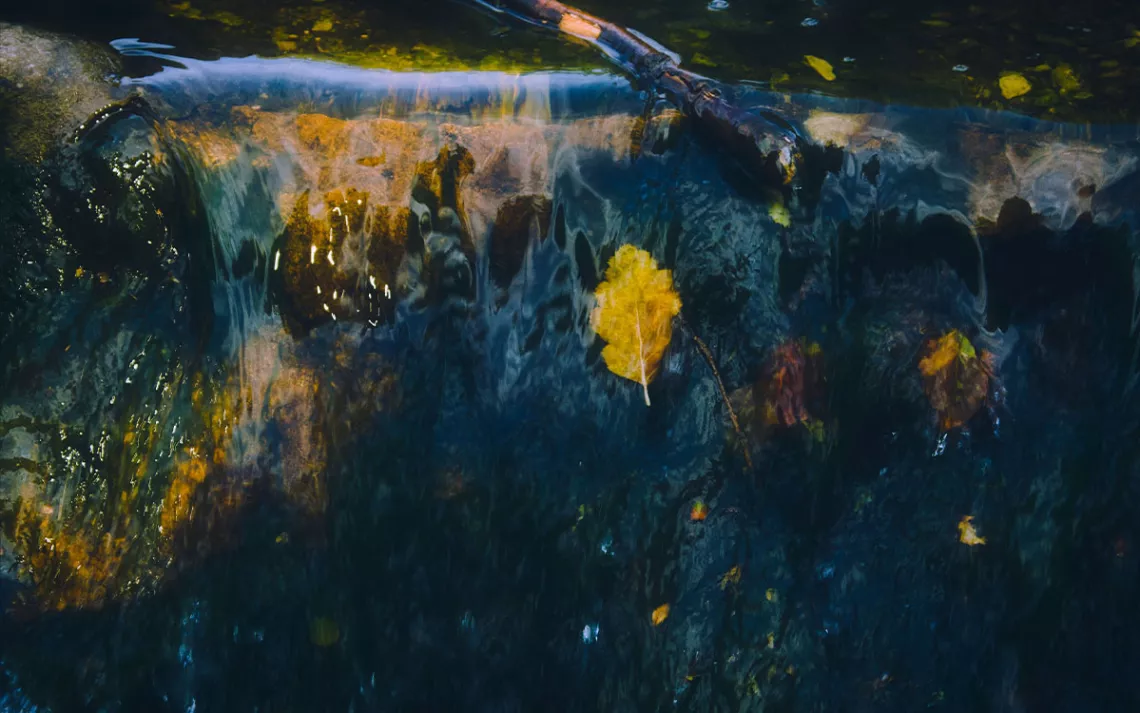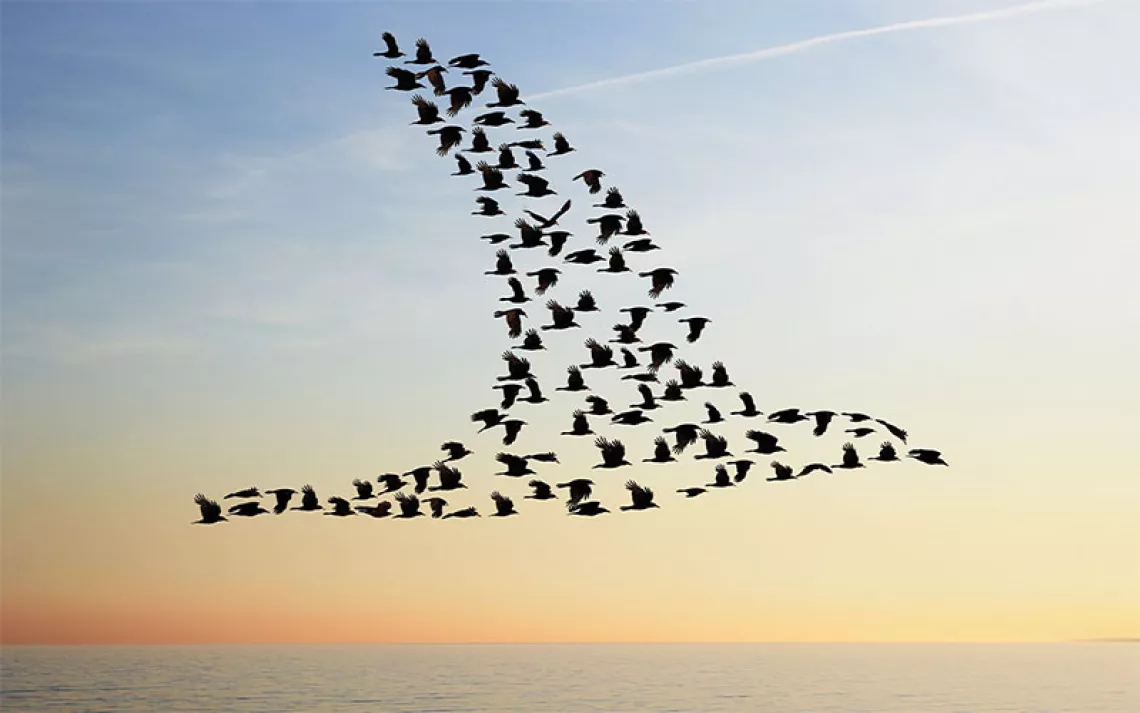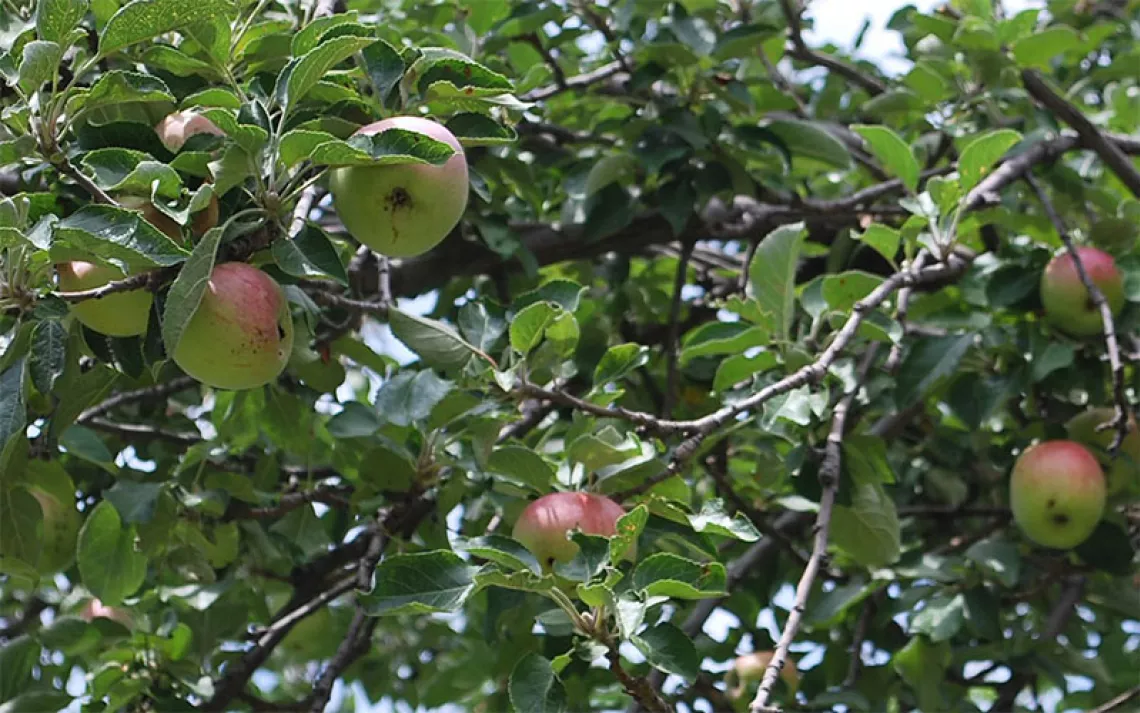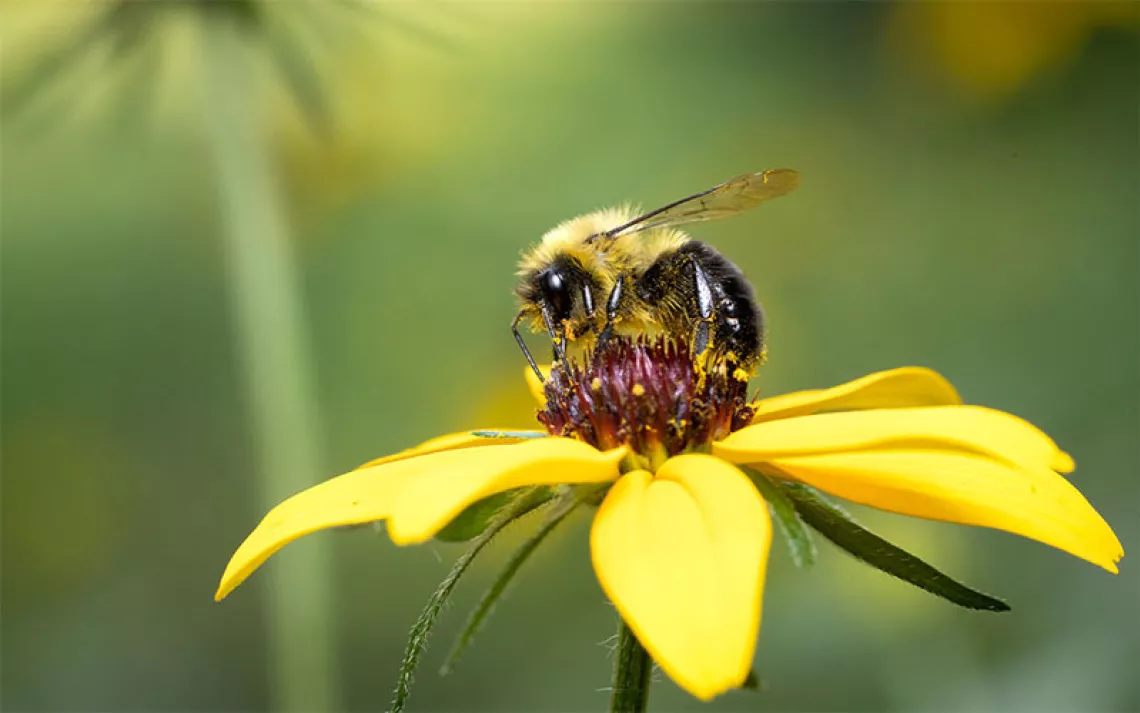Watch Your Language
By using anthropocentric terms, we work against the better interests of animals and other organisms

Photo by Wirestock/iStock
Everyday language contains words and phrases heavy with cultural meaning, some of which we hardly notice anymore. When we use them unquestioningly, we risk perpetuating outdated attitudes toward various marginalized human groups as well as other species in the natural world. In English, many anthropocentric, or human-centered, assumptions place nature at odds with, or merely in service to, humanity. In a biodiversity crisis, we need to foster interconnection instead.
Words are more than labels. They can be a set of implicit instructions for thought and action.
Even seemingly innocent words, like harvest or fishery, have the power to normalize thinking and behavior that reinforces what Eileen Crist refers to as "human supremacy" in her book Abundant Earth: Toward an Ecological Civilization. Knowing this, we must do away with "conventionalized slurs, put-downs, objectifications, and dualisms," says Crist. If for example we say that a homesteader is “harvesting” trees when cutting them down for construction materials, we blur the distinction between the intrinsic value of a tree as a wild organism, with a life in its own community, and a domesticated crop that farmers plant. The compulsion to lump every species or action in with the agricultural world, which has done more to shape human history than almost anything else, speaks volumes about how we view ourselves as the overlords of everything else.
That obsession with our own technology and its bottomless need for supplies explains a lot, including our language choices. For Crist, the most insidious term is "natural resources," because it embodies "the post-Cartesian secular view of nature as purely material, mechanical, and lacking inherent purpose." Water, ore, soil, and sand get lumped in with bison, salmon, and white pines. If it's useful to us, it's a resource. Exploitation appears to be our right as "Earth's aristocracy."
If used frequently, a disrespectful, disdainful, or merely misleading term—e.g., bugs to refer to all insects—can transform our perception. Word use can translate into action, sometimes incrementally, sometimes very quickly. Such is the power of language to shape what we call reality. When free-roaming house cats decimate songbirds and small rodents, they are sometimes referred to as “pests.” But that term can become supercharged with violent results. In New Zealand for example, feral felines were subjected to brutal (and controversial) eradication programs after they were deemed “pests” to local ecosystems. The license to kill is often associated with a word like pest (or even invasive or alien to describe a species that often we humans introduced to an ecosystem).
If we feel compelled to evaluate every living being as good, bad, or neutral solely in light of its relationship to ourselves, there will be more species left out of our circle of respect than included within it. No species should have to earn its right to exist, free from exploitation and harassment, by providing a good or service. Yet time and time again we treat organisms that way, allowing the values of the marketplace to infiltrate our thinking, and thus, the language we use to express that thinking.
Biologists can even fall into this trap when they advocate for the conservation of this or that ecosystem with arguments weighed heavily in favor of its benefits to human welfare (which often includes the local or global economy). They call these vital phenomena services instead of seeing them as examples of ecosystem functions. We called them services because we finally realized how essential they are; all the more reason to respect and honor their integrity and right to exist, but we often exploit them to destruction instead.
A bee is more than a pollinator of almond trees. A school of anchovies is not a fishery. A tree is not a mass of lumber ready to be harvested. The dominant social paradigm that shapes our language has little room for this fundamental respectfulness. What would it be like to see such organisms as existing for their own sake—to describe them as they are, in their own world, and not as they ought to serve in our own?

Sign up to receive Sierra News & Views
Get articles like this one sent directly to your inbox weekly.
With this action you affirm you want to receive Sierra Club communications and may vote on policy designated by the Sierra Club Board.
So much in day-to-day life encourages us to ask, "What's in it for me?" Thankfully, not everyone actually thinks like that. But, in cultures like ours, people often struggle to see a cow as a fellow sentient being instead of “livestock,” or to look at a tree-covered mountain without imagining a ski resort. The utility mindset locks us in; word use helps maintain the trap. Our society, says Crist, “seems to have taken away humanity's freedom to renounce” that paradigm. She blames the “triangulation of language plus technologies plus institutions [that] gives rise to consensus reality.” She also quotes Ludwig Wittgenstein: “A picture held us captive, and we could not get outside it for it lay in our language and language seemed to repeat it to us inexorably.”
It doesn't help that current lexicons offer few easy alternatives to anthropocentric vocabulary. (See below for some currently used ones, plus a few suggestions.) That doesn't mean no one will invent any, or that they will never catch on. First of all, we need to be aware of the need to switch linguistic gears. That has happened with gendered language, so surely it can happen elsewhere.
Searching other concepts already out there would be a great idea. Other linguistic groups frame the world in surprisingly different ways; English may be dominant worldwide, but it does not have a premium on reality! Indigenous peoples still see other species and our relationship to them more inclusively. Perhaps we can learn something by exploring a broader array of approaches, and widen that circle of respect for nature, starting with our words.

 The Magazine of The Sierra Club
The Magazine of The Sierra Club



